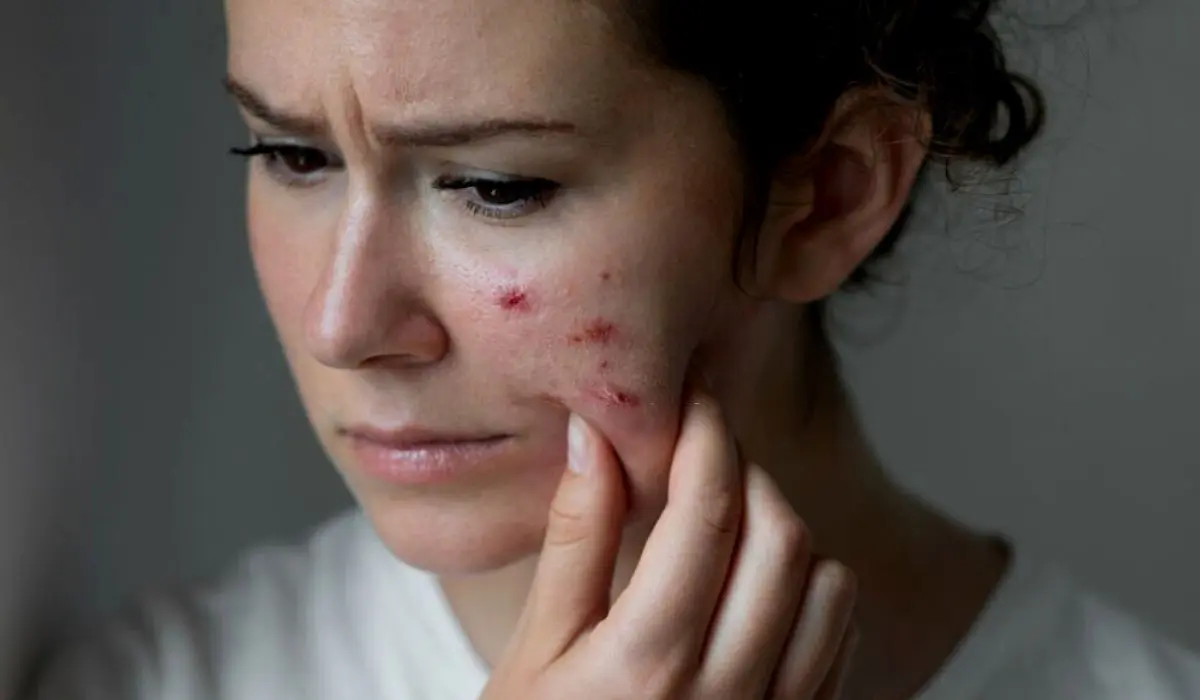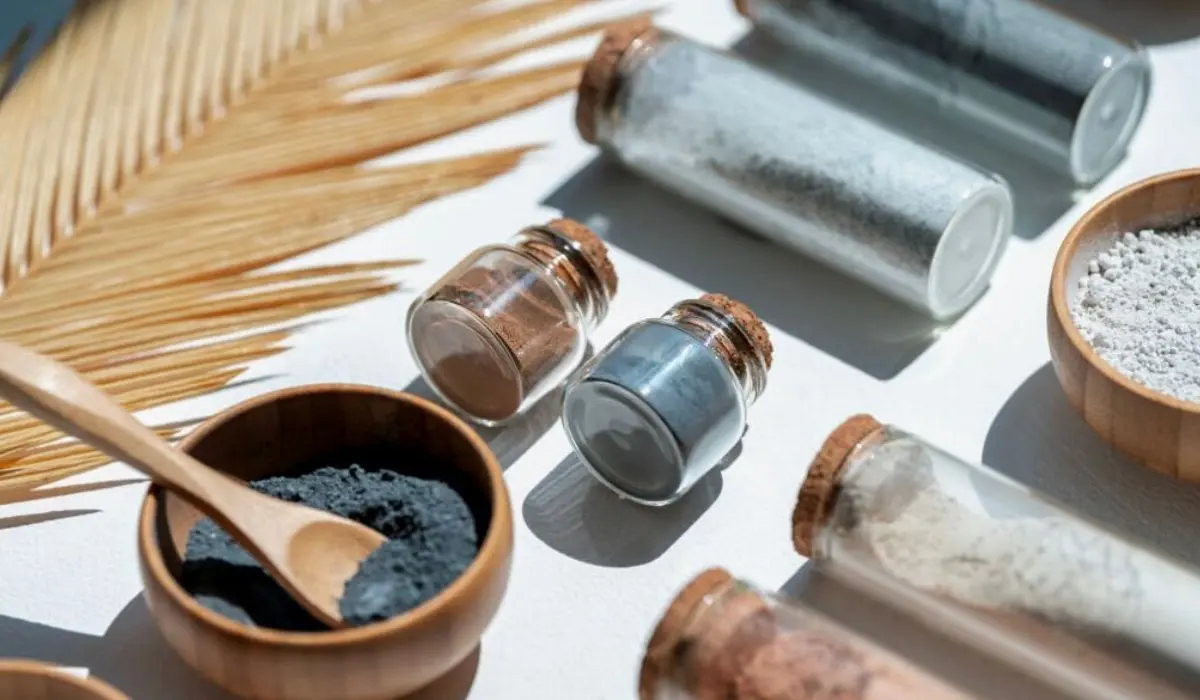Oily skin and acne pimples can be frustrating skin concerns to treat. While we often turn to expensive creams and ointments, natural ingredients from your kitchen can be highly effective against greasiness, acne, and blemishes.
Home remedies are gentle, safe, and easy to use for most skin types. In this article, we look at how oily skin develops, its symptoms, top home remedies to control oil and pimples, tips for use, and precautions.
How Do Oily Skin And Pimples Affect Your Face?
Oily skin results from overactive sebaceous glands producing excess sebum. This gives the skin a greasy shine. Dead skin cells and bacteria clog pores leading to blackheads, whiteheads, and pimple outbreaks.
Hormonal fluctuations, genetics, diet, weather, and stress influence sebum production. Acne and shine can negatively impact one’s self-confidence.
Symptoms Of Oily Skin And Pimples

Some common symptoms are:
✔ Visible grease and shine, especially on the T-zone and cheeks
✔ Severe oiliness shortly after washing the face
✔ Frequent blackheads and whiteheads
✔ Recurring pimples and acne outbreaks
✔ Large pores surrounded by oil
✔ Dull complexion
Home Remedies To Control Oily Skin and Pimples
1. Egg white mask – Tightens pores and removes excess oil
2. Fuller’s earth face pack – Absorbs grease and deep cleans skin
3. Yogurt mask – Reduces shine and fights acne-causing bacteria
4. Apple cider vinegar – Balances pH levels of skin to control oil
5. Aloe vera gel – Has astringent properties to reduce sebum
6. Green tea – Its antioxidants and tannins control acne and oil
7. Orange peel powder – Dries out pimples and decreases oiliness
8. Cucumber juice – Has mild astringent effect and soothing properties
Related:- How Do You Use Willow Bark Extract On Your Skin? Elevate Your Beauty Regimen
Precautions & Tips
Oily, acne-prone skin can be frustrating to deal with, but there are several precautions you can take to prevent excess oil and breakouts. Here are some top tips:
- Cleanse your face twice daily with a gentle, soap-free cleanser to remove oil, dirt, and debris without stripping your skin. Avoid harsh scrubs.
- Use oil-free, non-comedogenic moisturizers and lotions specifically formulated for acne-prone skin. This provides needed hydration without clogging pores. Look for hydrating ingredients like hyaluronic acid and niacinamide.
- Exfoliate 2-3 times per week with a gentle cleanser or chemical exfoliant containing salicylic acid or glycolic acid. This removes the top layer of dead cells and debris that can block pores. But do not over-exfoliate.
- Apply a clay mask 1-2 times weekly to draw out impurities from the skin and tighten pores. Kaolin and bentonite clays work well for oily skin types.
- Use oil-blotting sheets during the day to remove excess oil and shine from the skin’s surface. Carry them in your bag for touch-ups.
- Avoid touching or picking at your face with dirty hands as it can transfer bacteria into pores leading to more acne. Change pillowcases frequently for the same reason.
- Manage stress properly through yoga, meditation, or exercise as high cortisol can trigger hormonal breakouts. Get adequate sleep every night.
- Avoid oil-based cosmetics and instead choose labeled non-comedogenic or oil-free face makeup, sunscreens, and hair products.
- Eat a balanced, low-glycemic diet and stay hydrated. Limit dairy and sugar intake which can worsen acne.
- See a dermatologist if over-the-counter remedies don’t improve your oily skin and acne after a few weeks. You may need prescription-strength treatments.
With some diligence about your daily skincare routine and lifestyle habits, you can keep excess oil and acne flare-ups at bay for clearer, more vibrant skin. Be consistent and patient when using preventive measures and treatments.
Conclusion
For managing oily acne-prone skin, home remedies utilizing natural ingredients are an excellent alternative to harsh chemical treatments.
Food-based ingredients like egg white, yogurt, lemon juice, apple cider vinegar, aloe vera, orange peel, green tea, and cucumber are abundant sources of oil-controlling, antimicrobial, and anti-inflammatory properties.
Using them regularly in face masks and topical applications can effectively degrease skin, tighten pores, dry out pimples, and restore a healthy, clearer complexion without dryness or irritation.
Home treatments require consistency and patience, but with diligent use, they can successfully treat even the oiliest acne-prone skin types.
Read More:- How Can Oil Cleansing Methods Help Control Oily Skin?
FAQs
Q: Can oily skin cause wrinkles?
A: Yes, excess oil production can degrade collagen and cause premature aging like wrinkles and sagging over time apart from acne breakouts.
Q: Does oily skin need a moisturizer?
A: Yes, use an oil-free, non-comedogenic moisturizer suitable for acne-prone skin. Avoid skipping moisture as it can trigger even more oil production leading to breakouts.
Q: Is honey good for oily skin?
A: Yes, raw honey helps balance oils, fight bacteria, and improve acne. Use a honey face mask 1-2 times a week to control oily skin without drying it out.
Q: Can you permanently get rid of oily skin?
A: Oily skin can be controlled but not permanently eliminated. Managing diet, and lifestyle, and using suitable products can reduce oiliness. But discontinuing these can bring oiliness back.
Q: Is ice good for oily skin?
A: Rubbing ice over oily areas can temporarily tighten pores and reduce oil and puffiness. But ice should not directly contact the skin for too long as it may damage the skin.

